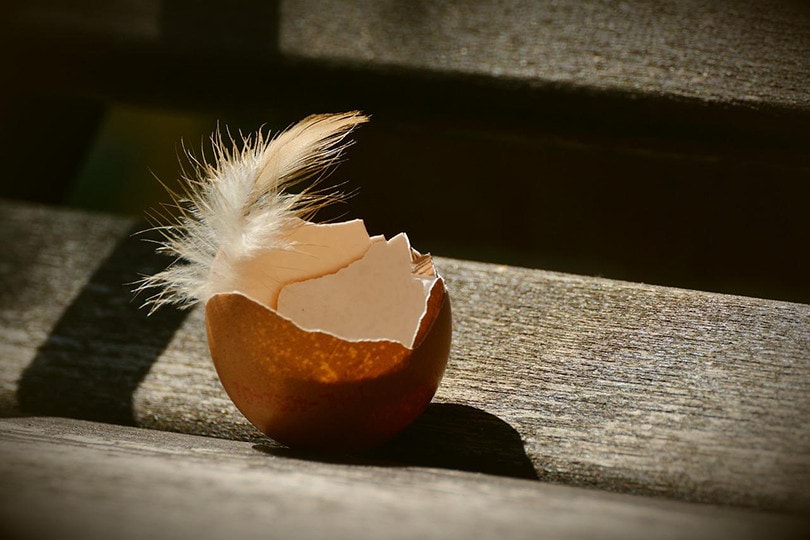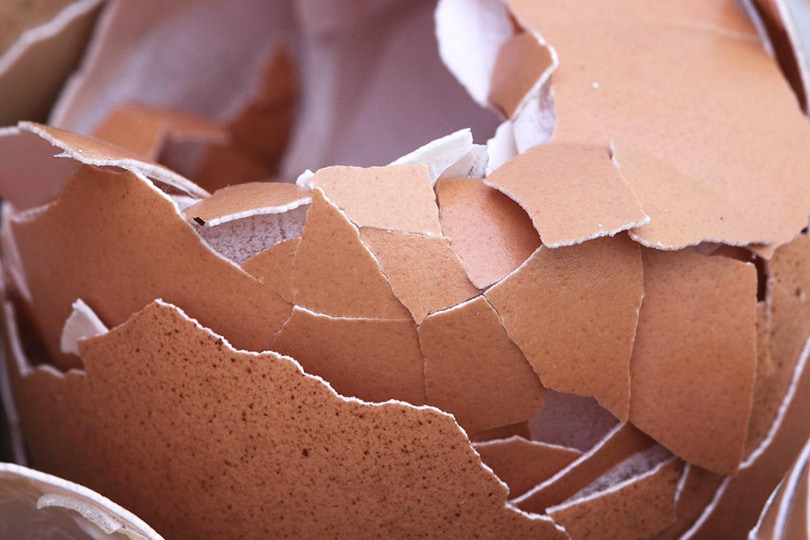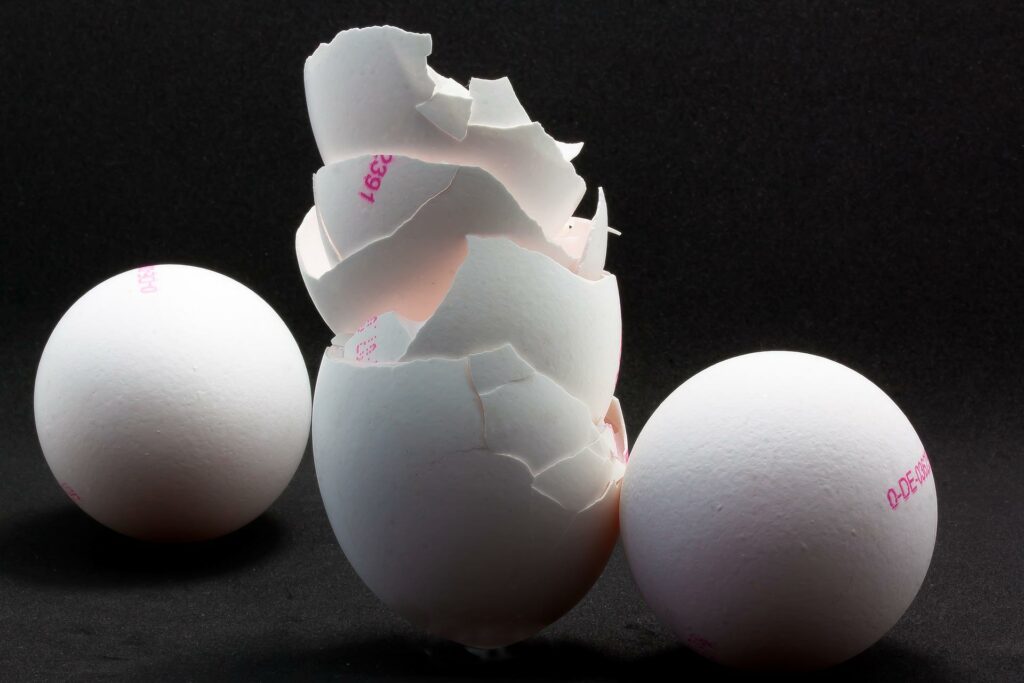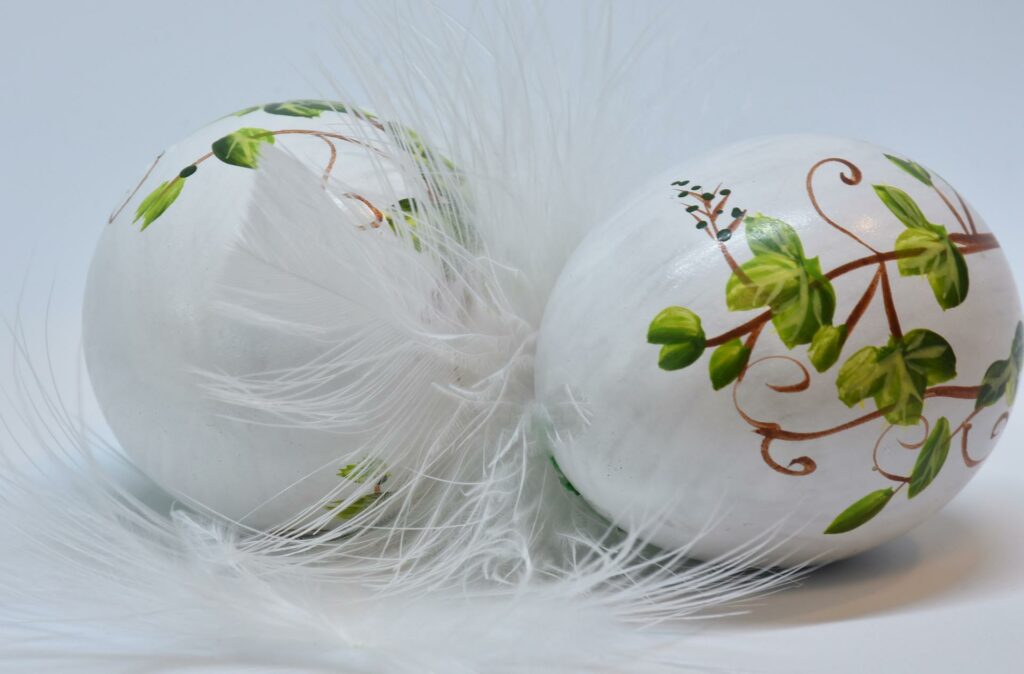Are Eggshells Good for Plants? Benefits, Risks & Myths
-
Ed Malaker
- Last updated:

If you are an avid gardener and spend time on social media, you likely have seen several posts stating that adding eggshells to your garden can be helpful. If you are wondering if these posts are truthful, the answer is yes — technically. Eggshells can benefit soil, but how much they actually help might be exaggerated. Keep reading as we discuss all the pros and cons of adding this common household waste product to your garden.
Are Eggshells Good for Plants?
Composting
The biggest benefit from eggshells comes from adding them to your compost pile. When you compost them, the small amount of organic material still in the shells helps attract microorganisms that speed up decomposition. These shells help create air pockets in the soil too, creating a natural form of aeration that will also help speed up the composting process.

Aeration
The aeration created by eggshells will help in other areas besides the compost pile. The small air pockets make it easier for the soil to hold water to help the ground stay hydrated, especially in areas where the land is compact or dense. The eggshells take a while to break down, so you won’t need to repeat the process as often as many other solutions.
Reducing Environmental Impact
Spreading used eggshells around your garden will help keep them out of trash bags and landfills.

Are Eggs Bad for Plants?
Carbon Footprint
While eggs are not harmful to the plants that you have in your garden, eggs technically have a large carbon footprint. Producing food for egg-laying hens has the biggest impact on the environment, and raising millions of chickens to produce more than 68 tons of eggs each year also affects groundwater and the land.
Waste Material
Eggshells take a long time to break down, and producing several million each year significantly adds to landfills. Some studies suggest that the waste that eggs produce is similar to the amount of plastic that is added to the oceans yearly. In fact, many areas consider eggshells to be hazardous waste material.

How Are Eggshells Overrated?
End Rot
Many websites recommend adding eggshells to the soil to prevent end rot, a disease affecting tomatoes, peppers, and other plants. It causes the fruit to rot at the end farthest away from the branch that it’s growing on, giving it its name. Since a lack of calcium is to blame, adding eggshells makes sense. However, it actually takes far too long for the eggshells to break down to provide any help to your suffering plants.
The best way to prevent end rot is through routine watering, as there is usually more than enough calcium in the soil. Improper watering, whether too much or too little, makes it hard for the plant to get enough nutrients. Damaged roots from transplanting can also make it difficult for the plant to get enough calcium.
Controlling Pests
Some websites recommend adding eggshells to your garden to control pests like insects and snails. However, the organic material remaining in the shell is more likely to attract insects than repel them. Slugs and snails can also easily glide over the sharp edges of broken eggshells.

Changing the pH of the Soil
While adding eggshells to your garden soil could potentially make it less acidic, the huge number that you would need to accomplish that makes other options more realistic.
Conclusion
The best way to use eggshells in your garden is to add them to your compost pile, which will create nutrient-rich soil for your plants to grow in. If you don’t have a compost pile, adding eggshells to hard, dense soil can help it retain more water so the roots can take hold. Spreading them around your property helps prevent them from getting into landfills. However, despite common belief, eggshells will not quickly add calcium to your soil to prevent the end rot disease, nor will they get rid of slugs and snails.
Featured Image Credit: congerdesign, Pixabay
Contents
